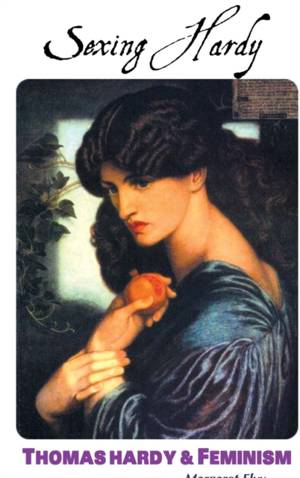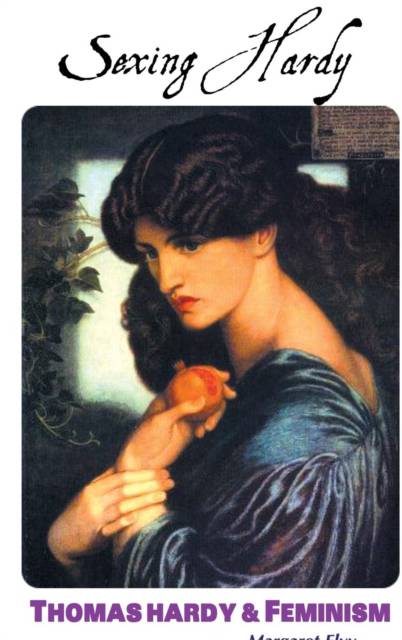
- Retrait gratuit dans votre magasin Club
- 7.000.000 titres dans notre catalogue
- Payer en toute sécurité
- Toujours un magasin près de chez vous
- Retrait gratuit dans votre magasin Club
- 7.000.0000 titres dans notre catalogue
- Payer en toute sécurité
- Toujours un magasin près de chez vous
Description
There are surprisingly few feminist analyses of the work of British novelist Thomas Hardy, and most do not get beyond vague notions of gender bias and sexism, in the Kate Millett and second wave feminist manner. Margaret Elvy's book, however, uses up-to-date research in the fields of cultural studies, feminist poetics, gay, lesbian and queer theory. This new, postmodern and incisive exploration of Thomas Hardy offers an exciting and radical reappraisal of the discourses of gender, desire, class, economy, socialization, identity and patriarchy in his fiction and poetry.
This third edition of Sexing Hardy has been completely updated, and includes a new introduction and a new bibliography.
EXTRACT FROM CHAPTER ONE: "THOMAS HARDY AND FEMINISM"
Is Thomas Hardy a feminist? Are Thomas Hardy's works feminist? How much do his works reflect and bolster the patriarchal attitudes and behaviour of his era, and how much do they question them? What is the relation between Hardy and the feminists of his time? And what is the link between Hardy's works and the feminism of the early 21st century?
This book approaches Thomas Hardy's fiction from a feminist perspective, in particular in the light of 'second wave' feminism and 'third wave'/ postmodern feminism.
Thomas Hardy's theme is what you might call 'Wessexuality', 'Wes-sex-mania', Wessexual politics. Hardy's works can be regarded as chauvinist, patriarchal and masculinist, and yet they question notions of sexism, gender, identity, patriarchy and masculinism. A text such as Tess of the d'Urbervilles is 'traditional', and follows patriarchal codes and morals. Yet it also questions them, and offers a number of feminist critiques of late 19th century society.
In his letters, Thomas Hardy proposed feminist views; he wrote to feminists such as the suffragette leader Millicent Fawcett that a child was the mother's own business, not the father's. One can see these feminist sentiments in, for example, Hardy's treatment of Tess in her motherhood: she works in the fields just a few weeks after the birth, even though she is melancholy (she might be suffering a mild form of post-natal depression). Tess further subverts patriarchy by taking her child's baptism into her own hands. She goes against her father, the vicar, and the whole church with her self-made baptism.
[...] Thomas Hardy's novels were not always received favourably by women critics and readers. Hardy's own views, expressed outside of the novels, did not always square with those of feminists of the 1880s and 1890s. The ideological gap between Hardy and the women critics and feminists of the late 19th century is illustrated by Hardy's remark to Edmund Yates (in 1891): 'many of my novels have suffered so much from misrepresentation as being attacks on womankind'. Hardy hoped that works such as Tess of the d'Urbervilles would redress the balance.
Illustrated (including biographical images, and images from film and TV adaptations of Hardy's fiction).
Bibliography and notes. 236 pages. Also available in paperback. www.crmoon.com
Spécifications
Parties prenantes
- Auteur(s) :
- Editeur:
Contenu
- Nombre de pages :
- 236
- Langue:
- Anglais
Caractéristiques
- EAN:
- 9781861715463
- Date de parution :
- 04-07-16
- Format:
- Livre relié
- Format numérique:
- Genaaid
- Dimensions :
- 156 mm x 234 mm
- Poids :
- 508 g

Les avis
Nous publions uniquement les avis qui respectent les conditions requises. Consultez nos conditions pour les avis.






